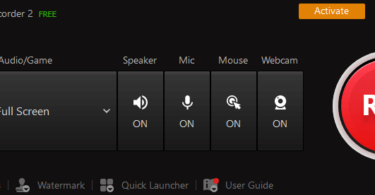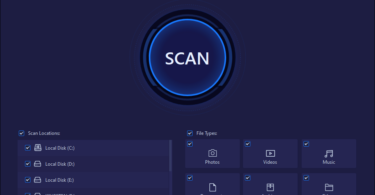Introduction
Sufficient good quality sleep is very essential for your mental and physical well-being and being productive at work. Insufficient or poor quality of sleep can lead to depression, obesity, and other life-threatening diseases like cardiovascular diseases, type 2 diabetes, etc. Unfortunately, people still tend to ignore this basic fact which results in them suffering from various mental and physical health problems. People are sleeping for less than recommended numbers of hours and the quality of sleep has also declined. One of the main factors for insufficient and poor quality of sleep is the advancement of technology. Technology can be good and bad for you, so the onus is on you how to use technology judiciously.
You might know that doctors have been recommending that you should move screens out of our bedrooms and stop using electronic gadgets, which emit blue light, one hour before going to bed.
Let us take a detailed look at how the blue light from the computer screen can affect your sleep.
What is Blue Light?
The human eye can see the light that falls in the range of 380nm to 780nm which is called a visible light spectrum. Visible light spectrum can be seen as colors violet, indigo, blue, green, yellow, orange, and red (VIBGYOR).
Blue light is a visible light with a higher concentration of visible energy and is defined as the “visible light spectrum” that is visible by the human eye and ranges from 380 nm to 500 nm. Blue light has one of the shortest wavelengths, and so the amount of energy produced is higher.
Blue light plays a vital role in keeping the human biological clock in alignment with the day/night cycle. Too much exposure to this blue light, especially at night, disrupts the biological clock, resulting in poor sleep and perhaps other effects.
How Blue Light Hurts Sleep?
When you wake up in the morning, looking at bright morning skies can make you feel energized because high-intensity blue light coming from the sun shapes your mood to be a good energized one. Among all colored wavelengths of the visible spectrum, blue has the most dominant impact on your light-related circadian rhythm that controls your sleep cycle. So, whether it is natural or artificial, blue light can boost the level of your alertness, reaction times and can have a powerful impact on your sleep. Blue light can block the ability of your body to get ready for sleep by blocking sleep-inducing hormone, melatonin. Your eyes can’t block blue light from reaching the retina and finally to your brain which in turn results in your brain translating light into images.
Unfortunately, exposure to artificial light late in the night can have an adverse effect on the timing of when you fall asleep and push your bedtime further which can result in delayed sleep phase syndrome and insomnia.
Blue light suppresses the production of melatonin (a hormone that regulates the sleep-wake cycle). Blue light messes with your body’s potential to prepare for sleep as it comprises shorter wavelengths or High Energy Visible (HEV) wavelengths.These shorter wavelengths from blue light cause straining of eyes (a discomfort that is becoming more prevalent in our technology-driven society), mental fatigue, discomfort, and headaches if too much time is spent on mobile and laptop screens or any other blue light-emitting electronic device.
Other symptoms of digital eye strain include:
- Sore neck or shoulders
- Sore, dry, itchy, or red eyes
- Sensitivity to light
- Blurred vision
All these contribute to sleep disruption. Continuous staring at blue light also damages eye retina and also contributes to age-related macular degeneration, which can result in loss of central vision.
Some of the electronic gadgets that emit blue light that can affect your sleep are
- Laptops
- Computer Monitors
- Televisions
- Smartphones
- Tablets
- Video Gaming systems
- Fluorescent light bulbs
- Light-emitting diode(LED) bulbs
Most of us these days are dependent on technology and spend the majority of awake hours staring at blue light-emitting screens. It can be a computer monitor or laptop at work, or TV, our smartphone, or tablets, or playing a video game that can result in digital eye strain and affect your sleep.
Digital eye strain also known as computer vision syndrome makes your vision blurry, your eyes become dry, you feel itching in your eyes, you start to experience headaches and find it difficult to focus.
Digital eye strain has an adverse effect on the vision and sleep of adults as well as children who are spending an extended number of hours glaring at blue light-emitting electronic gadgets.
How Can You Manage Extent of Exposure to Blue Light From the Computer Screen?
Eye doctors can provide a detailed list of recommendations for you and different eyeglasses that can help you to limit the amount of blue light that you are exposed to during the night. A few different tips are:
1. Stop using your computer or laptop well before your bedtime, minimum of an hour before you go to sleep
2. Use orange, amber or brown-tinted glasses that are good in blocking blue light
3. Reduce the brightness of your computer monitor or laptop screen.
4. Install “Night Mode” or “Dark Mode” also called as blue light-filtering apps on your computer or laptop
Conclusion
You must get adequate good quality sleep daily to lead a comfortable, productive, and robust life. It should also help you to avoid other mental and physical health issues like depression, obesity, cardiovascular diseases, type 2 diabetes, etc. With an increase in the use of technology in our daily lives, we must use technology in such a way that it becomes a boon and not a bane for our life. Extended use of a computer or any other blue light-emitting electronic device is going to hurt your sleep health and also can have a long-term harmful effect on your eyes and may lead to loss of vision.
The first and foremost thing is to restrict the time duration of screen time each day. It is the easiest and simplest method to avoid blue light and the harmful strain on the eyes. that can result due to too much exposure to blue light.
Make sure to have a look at Sleep Standards for more information about sleep, study, and mattress reviews.






